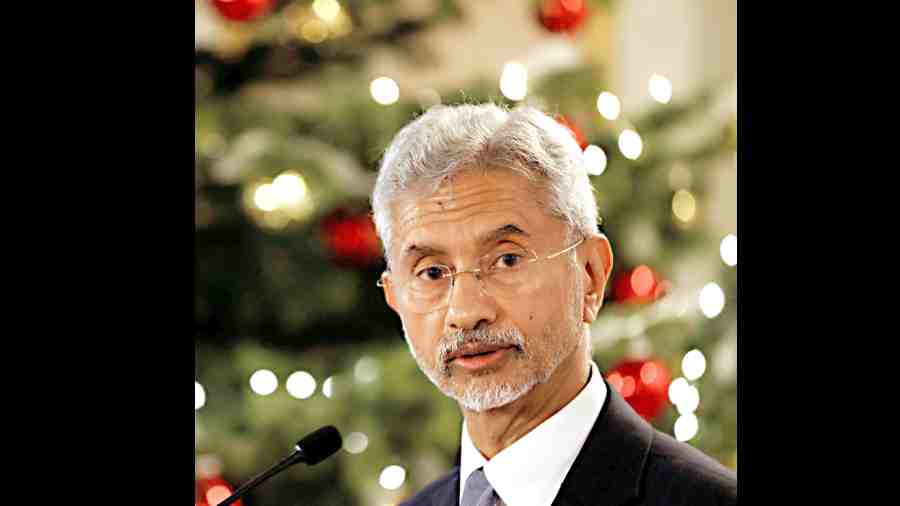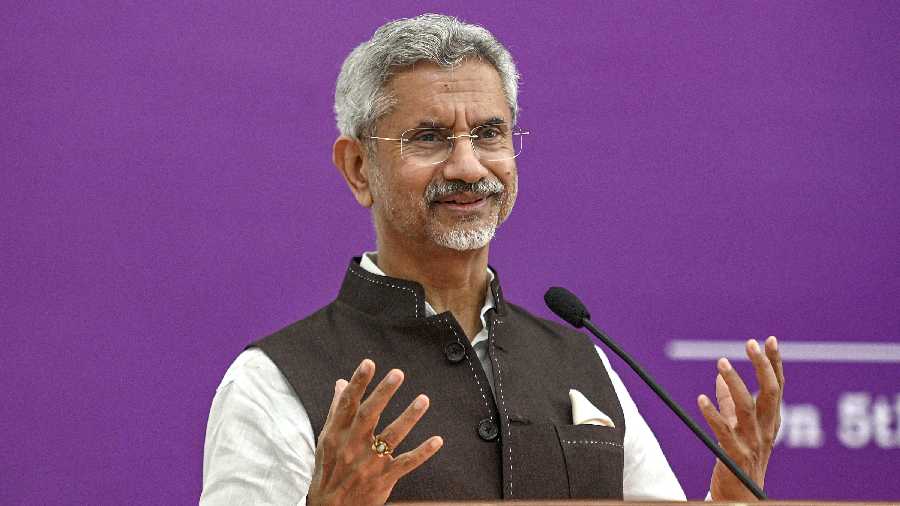Faced with a slew of questions in a European setting on India’s reluctance to openly criticise Russia, external affairs minister S. Jaishankar reminded the critics that Moscow had stood with India when the democratic West preferred to arm Pakistan, even during times it was a military dictatorship.
Jaishankar provided this lesson in history in an interview with the Austrian public broadcaster, ORF, during his three-day visit to the central European country.
Asked whether India’s reluctance to criticise Moscow owed to Russia being India’s most important supplier of weapons and military equipment, Jaishankar said: “No, we have a relationship with Moscow. We have had a long-term relationship with Moscow. It is important to look at the history of the relationship. It was a relationship built in a period when western democracies used to arm a military dictatorship called Pakistan and deny India defensive weapons. So if we are talking about principles, let’s talk a little bit of history out here.
“How did the Indian exposure to Russia and previously to the Soviet Union build up? Because the western democracies, for whatever reason, decided that their natural partner in our part of the world is a military dictatorship,” Jaishankar said while denying that India was a Russian ally. He underlined that India had made it “very clear that this conflict is not in anybody’s interest including theirs (Russia’s)”.
Asked whether India can remain neutral in a war “for which obviously one side bears all responsibility”, Jaishankar again dipped into history.
Jaishankar said: “Well, absolutely. I can give you many instances of countries who have violated the sovereignty of another country. If I were to ask where Europe stood on a lot of those, I’m afraid I will get a long silence…. At the end of the day, we make judgements in foreign policy based on what we think are our long term interests and what is good for the world.”
On the inevitable question about India increasing its energy imports from Russia and thereby financing its war against Ukraine, Jaishankar, as always, shot back that Europe imported six times what India did.
Reminded that Europe had reduced its imports after the war began while India had increased its imports of Russian energy since February 24, the minister said: “Essentially, if it is a matter of principle, why didn’t Europe cut on the first day? Why didn’t we see on25th of February a complete cut-off of energy imports from Russia? You can’t say, ‘It’s my principle but by the way, I will do it by my timing’.”
The anchor persisted, asking if there was no difference between decreasing imports while making sure that Europe did not freeze to death in winter and increasing Indian imports by five times.
“No,” Jaishankar replied.
“Europe has managed to reduce its imports while doing it in a manner which is comfortable for Europe. If at 60,000euros, or whatever is your per capita income, you are so caring about your population, I have a population at 2,000 dollars. I also need energy. I am not in a position to pay high prices. The price of oil has doubled. And what Europe is also doing is moving into the Middle East and diverting production out of the Middle East into Europe and raising prices.”
Stating that European actions are putting pressure on the global oil markets and Indian imports, Jaishankar added that “if European political leadership understandably would like to soften the impact on their population, I think it’s a privilege they should extend to other political leaderships as well”.












